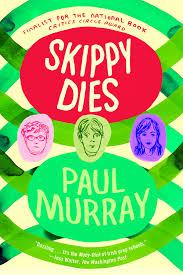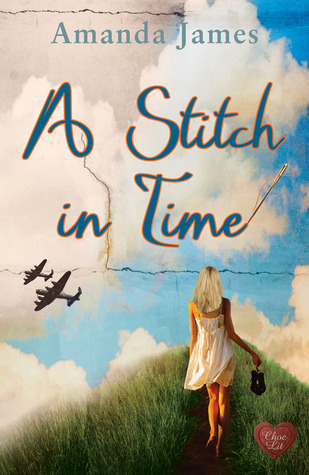Skippy Dies is a 2010 tragicomic novel by Paul Murray. It was shortlisted for the 2010 Costa Book Awards, longlisted for the 2010 Man Booker Price, was a finalist for the National Book Critics Circle Award, ranked number three in Time’s list of the ten best books of 2010, nominated for the 2010 Bollinger Everyman Wodehouse Prize for Comic Fiction, 2010 Irish Book Awards Irish Novel of the Year, and nominated for the 2012 International IMPAC Dublin Literary Award.

It is classified as a tragic comedy, and while it is certainly tragic – there were many parts where I actually cried – I wouldn’t necessarily call it funny. There were a couple funny parts that made me laugh, such as the alternate explanation for the meaning behind Robert Frost’s “Road Not Taken”.
Skippy Dies takes place in fictional 140 year old Seabrook College, a Catholic boarding school in Dublin. Split into three sections, “Hopeland,” “Heartland” and “Ghostland”, it begins with Skippy dying on the floor of a local doughnut shop, then it takes us back in time to explain how he ended up there, writing Lori’s name on the floor as he died. Lori, the frisbee girl he falls in love with, who is also romantically involved with Carl (psycho Carl). We follow Skippy and his friends Ruprecht, Mario, Geoff, and Dennis, who are all students at the boys boarding school, led by their mean Headmaster “The Automator”. Their teacher Howard also shares his story of how his long-time relationship and life unravel.
The characters are well developed, written with their own unique voice. We have an excellent amount of description, not too much, just the right amount so that you can picture each character in your mind perfectly, and feel like you are standing in the halls of Seabrook College. However, I detest the use of racist terms, unless it’s an “own voices” type book, teaching us about culture and history. If a character like Carl makes racist or sexist statements that’s fine, he is the villain, but I really want to see another character call them out on it. Carl Cullen and Barry Barnes are the two little drug-head dweebs at your school, who think they are so cool and bad-ass but they are losers.
Although most of the characters were well-written, with clear goals, motivations, struggles, and displayed growth – I had a really hard time connecting with them. I almost wanted to quit reading Skippy Dies about 55 times during the first 70%, and I think that was mainly due to the lack of empathy I had for the characters. I didn’t feel attached to Daniel Juster AKA Skippy, or to his best friend Ruprecht Van Doren. I didn’t care about their teacher Howard Fallon, or Miss McIntyre. I did find myself a little invested in Lori’s story, and may have enjoyed learning a bit more about her resolutions at the end of the story.
Ruprecht’s incessant discussion about M-Theory made me want to pull my hair out of my head. I don’t think the regular person reading this book would enjoy THAT much description about parallel universes, or string theory. I’m into science, but when I’m reading a story about drama unfolding at a boarding school I’d like the story to stay on track and not fall off the deep end into a discussion about theory.
I’m having a hard time writing this review because on the one hand I admire the story, characters, description of setting, plot. The climax was perfect, the resolution was a little muddy, but still good. By all means I should have LOVED this book but for some reason I just didn’t. I read the Ebook version, but it is available in a three volume set. I feel like reading Skippy Dies in the three volumes would give a better reading experience.
I do recommend you give this a read – as it covers important topics and is extremely thought-provoking. Have you read it? What did you think? I’d love to hear your thoughts in the comments!
Thanks for stopping by, happy reading,
Amanda
Advertisements Share this:





